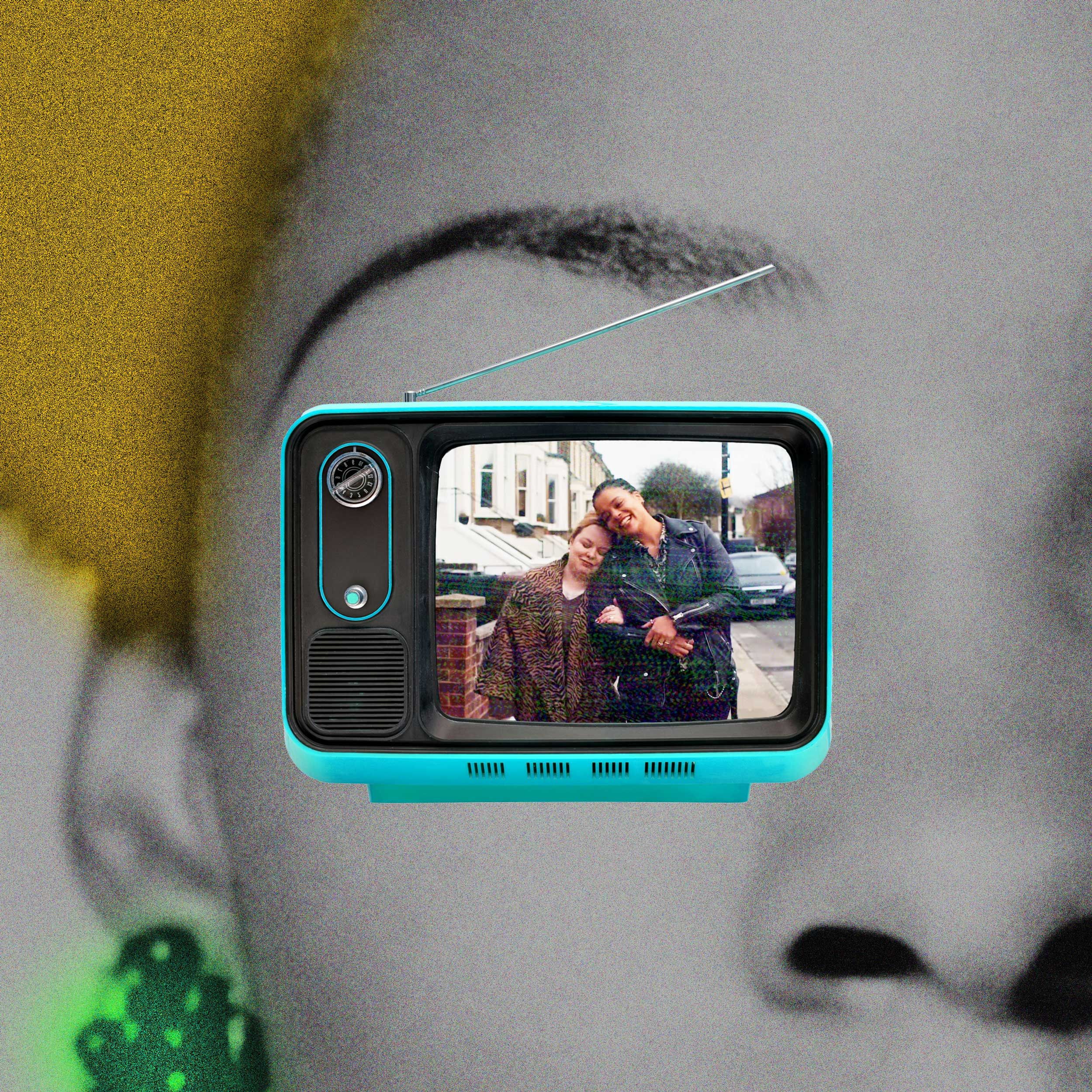
We get it: There’s an overwhelming number of television shows right now. The streaming landscape is an impractical maze, and the good stuff easily gets lost in the shuffle. But most of us can still find one show that cuts through the noise. We call this “appointment viewing” — or the time you carve out in your busy schedule to watch the show you’ll want to unpack the next day with your friends while it’s still on your mind. Tune in here each month to read what writer Michel Ghanem, a.k.a. @tvscholar, deems worthy of a group-chat deep dive.
So far this year, we’ve covered prestige-TV hits like Shōgun and True Detective, and we moved into lighter fare to have some fun with The Girls on the Bus. This month, we examine the state of the millennial dramedy with Big Mood, an import from the U.K. premiering on Tubi, starring Nicola Coughlan and Lydia West as two best friends navigating friendship in the midst of a mental-health crisis.
What’s this millennial dramedy I’ve been hearing about?
All hail the existential millennial dramedy! Big Mood follows the misadventures of Maggie (Nicola Coughlan) and Eddie (Lydia West), two best friends navigating the trials and tribulations of life in East London. Maggie is living with bipolar disorder, and as the series begins, she abandons her medication to seek a clearer mind to write the play her agent is waiting for her to submit. Meanwhile, her best friend, Eddie, is ride-or-die and nonjudgmental in her support for Maggie — and trying to manage a failing dive bar she inherited from her late father.
Both actors are rising television stars in their own right. You might remember Coughlan as a “wee lesbian” on Derry Girls and in the throes of romance on Bridgerton, and West played an ally during the 1980s AIDS crisis in It’s a Sin and an aspiring transhuman on Years and Years. Big Mood sees the talented actresses straddle the fine line between comedic timing — with the help of jokes about classic millennial obsessions like Love Actually and One Direction — and more serious subject matter with an unflinching look at the peaks and valleys of bipolar disorder. Both performances are fantastic, but Coughlan really shines in playing the full spectrum of the bipolar experience: the messiness, the manic exhilaration, and the insidious ways it can interrupt daily life and friendship. Somehow, it’s still funny, too.
How can I watch it?
After premiering in the U.K. last month, Big Mood’s six half-hour episodes will be available Stateside starting April 19 on Tubi, a free streaming and live-television service that requires no subscription and has quickly become one of the most-watched services in North America — if you don’t mind a few commercial breaks interrupting your viewing. While other streaming services have been canceling shows before they have a chance to bloom, Tubi has been growing its acquisitions and original-content slate (including buzzy British shows like Boarders and Dead Hot) — all part of a broader strategy to attract and retain a younger, diverse viewership, which Vulture recently explored in a dispatch of Buffering.
So, is it anything like Fleabag?
We used to have a sea of options for existential millennial tragicomedies on television, from Girls and Broad City to Fleabag and Everything I Know About Love. There are threads from each of those shows in Big Mood, plus a blend of different genres and tones throughout the season. In the upbeat pilot, a manic Maggie returns to her high school to deliver an inspirational speech to her students with just a fringe play under her belt. By the second episode, she enters a depressive low, forced against her will to celebrate her 30th birthday.
The way the show shifts in tone captures the ebbs and flows of Maggie’s mental health, a device that reminds me less of Fleabag and more of Crazy Ex-Girlfriend, the beloved musical-dramedy that tackled borderline personality disorder, or Work in Progress, an underrated and very queer series depicting OCD and depression. What these shows and Big Mood understand is the importance of depicting the complexities of mental well-being in realistic but non-damaging ways — while still being comedic. As Big Mood points out in the finale, you don’t need to use schizophrenia to see through the lens of a serial killer, or use institutionalization as a horror-tinged spectacle, to get people to care about the realities of mental illness.
In recent years, some dramedies depicting millennials, like Search Partyand Insecure, ended in weddings and/or babies, signifying the accurate shift happening in my own friend groups as we age into our 30s. But there are still many of us who search for equilibrium in our lives, particularly when we choose to not follow a heteronormative path. There are fewer and fewer of those stories on television as the episodic gaze shifts to Gen Z in their 20s, so let’s enjoy gems like Big Mood while they last. As Eddie tells Maggie after running into an acquaintance who has had four children by age 30, “Some women spend their 20s starting a family; some women spend them on ketamine. Both are valid choices.”
By Michel Ghanem , 2024-04-08 14:00:13
Source link


